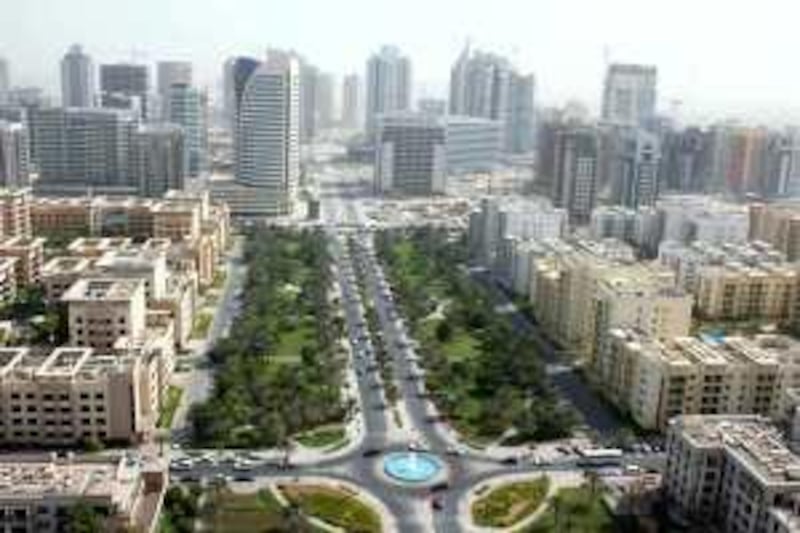ABU DHABI // Investment funds focusing on distressed property are forming in the UAE, helping to solve some of the problems caused by disputes between developers and investors that have hit tower builders' cash flows. Their emergence has coincided with a recovery in prices in some parts of Dubai and Abu Dhabi, raising hopes that the property market may have turned the corner after a sharp downturn.
"The arrival of these funds marks the beginning of the upturn in the market," said Hamish Walton, a partner in the financial services practice at the law firm Clyde & Co in Dubai. "I think the market in many ways has already hit the bottom. These transactions will be the first signs of recovery." Distressed asset funds could help get cash flowing for some projects and protect investments at a time when the market has slowed to a near standstill, Mr Walton said.
Many buyers, especially of off-plan properties, are reluctant or unable to keep up with instalments because of the downturn in the economy. Developers cannot build their towers without cash, leaving the two sides in disputes that are playing out in the courts and in the offices of bodies such as the Real Estate Regulatory Agency in Dubai. Tariq Hameed, a director at Access Consulting, said his company, along with an as yet unnamed global partner, was planning to launch a distressed property fund in about two weeks.
The fund, called Special Opportunities Scheme for Dubai Real Estate - or SOS Dubai Real Estate - would aim to raise US$250m (Dh918.1m) in several tranches. "The market is in a very, very difficult situation today," Mr Hameed said. "People are stuck in the real estate market and they have no way out. This fund would help some of these situations." The fund would target property that was well on its way to completion, and investors who had paid at least 50 per cent of the purchase price.
Instead of buying the property outright, the fund would take over the payment plan and ownership from the original buyers and offer them a certificate of investment equivalent to the value they had paid so far for their unit, Mr Hameed said. Then it would use money put into the fund by retail investors to pay the remaining instalments on the property. The fund's investors would get a fixed return on their investment, as with a bond, with the option to convert their stake into equity. After a period of years, the apartment would be sold off, giving the original buyer back their stake money plus, it is hoped, some interest on top, and the fund's investors their return.
"The basic assumption is that prices will rise in five to six years to a point where home owners get their principal amount plus interest," Mr Hameed said. "It also opens investment to individuals who have an appetite to play the real estate game, but do not have an equity stake in properties." Andrew Charlesworth, the head of corporate finance advisory at Jones Lang LaSalle in Dubai, agreed that the arrival of distressed asset funds could be a signal that the market is in the final part of its decline.
"When you get pricing that is dropping by 30, 40 or 50 per cent, there is an investment group that takes that quite seriously," he said. "The expectation is that pricing will reset back to historic norms at some point. Sophisticated investors recognise that you never know when you are at the bottom, so a lot of people buy when the trend is still slightly downwards." Mr Charlesworth said his company was in discussions with foreign institutional investors and regional sovereign wealth funds about opportunities to make distressed asset investments.
In some cases, these could be bridge or mezzanine loans issued directly to developers who could not get bank financing to finish the final stages of a project, Mr Charlesworth said. Projects that are still raw land, have not started construction or are in the very early stages are attracting little interest, he said. However, the arrival of investors in distressed assets was adding certainty to the market, which was in turn improving sentiment and pushing the market "in the right sort of direction".
Deyaar Development, a major builder of towers in Dubai, is planning to launch its own distressed asset fund in the next few weeks, although the fund would focus solely on defaulted property among its own properties. After a buyer defaults and loses part or all of their investment, Deyaar would sell the unit at a discount to the fund. The fund, which would range in size between Dh500m and Dh1 billion, would hold on to the unit until the market improves and then resell it for a profit, the company said last week. @Email:bhope@thenational.ae






